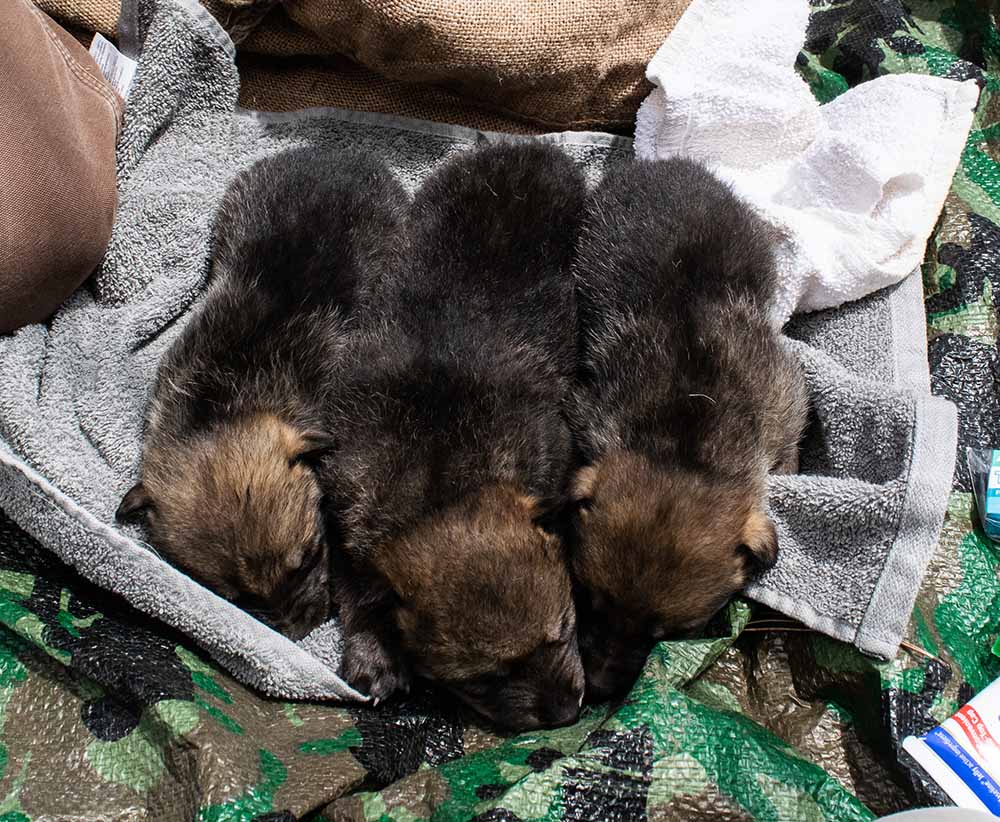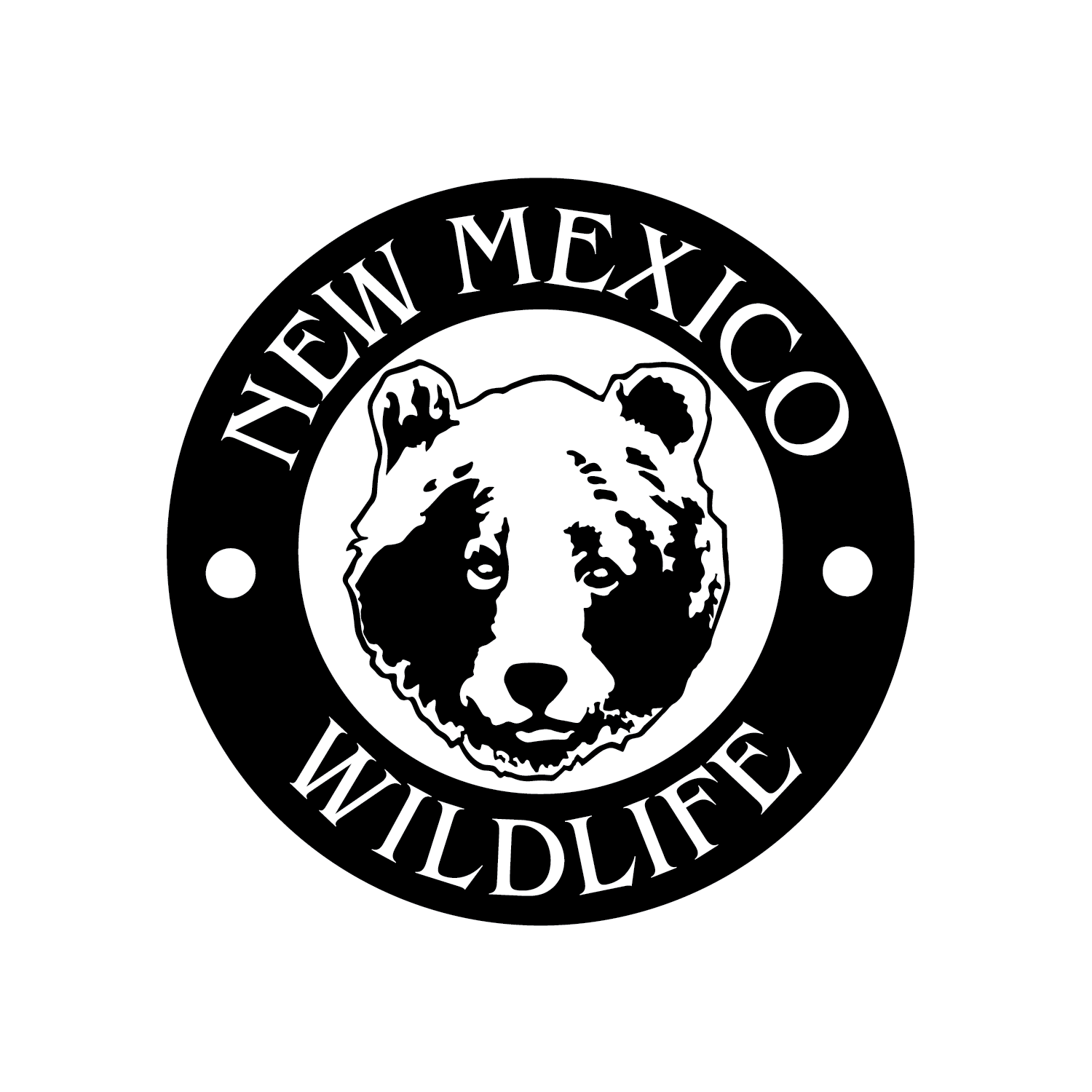Arizona Game and Fish Department
Media contact, Tom Cadden: (623) 236-7392
tcadden@azgfd.gov
New Mexico Department of Game and Fish
Media contact, Tristanna Bickford: (505) 476-8027
tristanna.bickford@state.nm.us
U.S. Fish and Wildlife Service
Media contact, Aislinn Maestas: (505) 331-8027
aislinn_maestas@fws.gov
FOR IMMEDIATE RELEASE, DEC. 17, 2020:
At Least Seven Mexican Wolf Pups Successfully Cross-Fostered into Wild Packs

Record number of cross-fostered pups captured and collared by field team
The Mexican Wolf Interagency Field Team (IFT) has successfully captured and radio-collared seven of this year’s cross-fostered pups, documenting record success for the program. Last spring, members of the IFT and the Mexican Wolf Species Survival Plan cross-fostered a total of 20 genetically diverse wolf pups from captive facilities into litters of wild wolf packs. As part of ongoing efforts to record survival of cross-fostered pups, the IFT reports the following:• One of two pups cross-fostered from the Phoenix Zoo to the Iron Creek pack (NM) has been caught and radio-collared.
• One of two pups cross-fostered from the Endangered Wolf Center to the San Mateo pack (NM) has been caught and radio-collared.
• Three of four pups cross-fostered from the Sedgwick County Zoo to the Hoodoo pack (AZ) have been caught and radio-collared.
• One of the four pups cross-fostered from the Endangered Wolf Center to the Dark Canyon pack (NM) has been caught and radio-collared.
• One of the three pups cross-fostered from the Endangered Wolf Center to the Elk Horn pack (AZ) has been caught and radio-collared.
Unfortunately, this animal was found dead in December.
These results represent the minimum number of the 20 pups cross-fostered in the spring of 2020 having survived to date. In 2019, the IFT captured and collared two out of the 12 pups cross-fostered into the wild. The IFT has documented that cross-fostered pups have the same survival rate as wild-born pups in their first year of life (about 50 percent).
“We have documented survival in four out of the seven packs that received cross-fostered pups this year—and there could still be more. This is an extraordinary accomplishment by our field team,” said John Oakleaf, Mexican Wolf Field Projects Coordinator for the U.S. Fish and Wildlife Service. “The Service would once again like to thank the staff from the captive facilities, LightHawk, and the Interagency Field Team who continue to do incredible and visionary conservation work for the Mexican wolf.”
“It’s exciting to see these results from the team’s cross-fostering efforts this past spring,” said Paul Greer, Mexican Wolf IFT Leader for the Arizona Game and Fish Department. “We’re continuing to see progress on numeric recovery while at the same time making progress at infusing new genetics into the Mexican wolf population.”
Cross-fostering is a proven method used by IFT, a task force comprising federal, state and tribal partners, to increase genetic diversity in the wild Mexican wolf population. It involves placing genetically diverse pups less than 14 days old from captive breeding populations into wild dens with similarly aged pups to be raised as wild wolves. Since 2014, there have been 50 genetically diverse wolf pups cross-fostered into the wild. Five cross-fostered wolves have survived to breeding age, resulting in multiple litters of genetically diverse pups born in the wild. There are currently 14 genetically valuable cross-fostered wolves that are collared and alive in the wild that the IFT is actively monitoring. Very likely there are additional cross-fostered wolves alive in the population that have yet to be captured and collared. The IFT will continue collaring efforts in 2021 to document additional cross-foster survival.
Read about this year’s cross-foster efforts.
###

